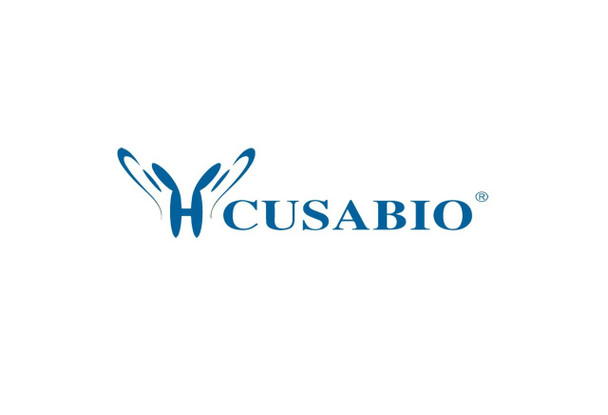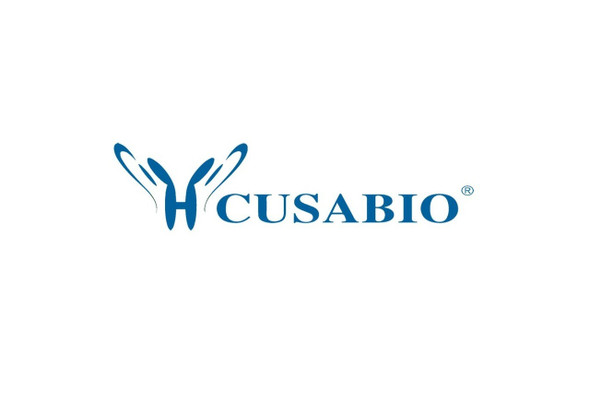Cusabio Human Recombinants
Recombinant Human Lysine-specific demethylase 5A (KDM5A), partial | CSB-YP012141HU
- SKU:
- CSB-YP012141HU
- Availability:
- 25 - 35 Working Days
Description
Recombinant Human Lysine-specific demethylase 5A (KDM5A), partial | CSB-YP012141HU | Cusabio
Alternative Name(s): Histone demethylase JARID1AJumonji/ARID domain-containing protein 1ARetinoblastoma-binding protein 2 ;RBBP-2
Gene Names: KDM5A
Research Areas: Transcription
Organism: Homo sapiens (Human)
AA Sequence: EYALSGWNLNNMPVLEQSVLAHINVDISGMKVPWLYVGMCFSSFCWHIEDHWSYSINYLHWGEPKTWYGVPSHAAEQLEEVMRELAPELFESQPDLLHQLVTIMNPNVLMEHGVPVYRTNQCAGEFVVTFPRAYHSGFNQGYNFAEAVNFCTADWLPIGRQCVNHYR
Source: Yeast
Tag Info: N-terminal 6xHis-tagged
Expression Region: 437-603aa
Sequence Info: Partial
MW: 21.3 kDa
Purity: Greater than 90% as determined by SDS-PAGE.
Relevance: Histone dethylase that specifically dethylates 'Lys-4' of histone H3, thereby playing a central role in histone code. Does not dethylate histone H3 'Lys-9', H3 'Lys-27', H3 'Lys-36', H3 'Lys-79' or H4 'Lys-20'. Dethylates trimethylated and dimethylated but not monomethylated H3 'Lys-4'. May stimulate transcription mediated by nuclear receptors. May be involved in transcriptional regulation of Hox proteins during cell differentiation. May participate in transcriptional repression of cytokines such as CXCL12. Plays a role in the regulation of the circadian rhythm and in maintaining the normal periodicity of the circadian clock. In a histone dethylase-independent manner, acts as a coactivator of the CLOCK-ARNTL/BMAL1-mediated transcriptional activation of PER1/2 and other clock-controlled genes and increases histone acetylation at PER1/2 promoters by inhibiting the activity of HDAC1 .
Reference: Characterization of the retinoblastoma binding proteins RBP1 and RBP2.Fattaey A.R., Helin K., Dembski M.S., Dyson N., Harlow E., Vuocolo G.A., Hanobik M.G., Haskell K.M., Oliff A., Defeo-Jones D., Jones R.E.Oncogene 8:3149-3156(1993)
Storage: The shelf life is related to many factors, storage state, buffer ingredients, storage temperature and the stability of the protein itself. Generally, the shelf life of liquid form is 6 months at -20?/-80?. The shelf life of lyophilized form is 12 months at -20?/-80?.
Notes: Repeated freezing and thawing is not recommended. Store working aliquots at 4? for up to one week.
Function: Histone demethylase that specifically demethylates 'Lys-4' of histone H3, thereby playing a central role in histone code. Does not demethylate histone H3 'Lys-9', H3 'Lys-27', H3 'Lys-36', H3 'Lys-79' or H4 'Lys-20'. Demethylates trimethylated and dimethylated but not monomethylated H3 'Lys-4'. Regulates specific gene transcription through DNA-binding on 5'-CCGCCC-3' motif
Involvement in disease:
Subcellular Location: Nucleus, nucleolus, Nucleus
Protein Families: JARID1 histone demethylase family
Tissue Specificity:
Paythway:
Form: Liquid or Lyophilized powder
Buffer: If the delivery form is liquid, the default storage buffer is Tris/PBS-based buffer, 5%-50% glycerol. If the delivery form is lyophilized powder, the buffer before lyophilization is Tris/PBS-based buffer, 6% Trehalose, pH 8.0.
Reconstitution: We recommend that this vial be briefly centrifuged prior to opening to bring the contents to the bottom. Please reconstitute protein in deionized sterile water to a concentration of 0.1-1.0 mg/mL.We recommend to add 5-50% of glycerol (final concentration) and aliquot for long-term storage at -20?/-80?. Our default final concentration of glycerol is 50%. Customers could use it as reference.
Uniprot ID: P29375
HGNC Database Link: HGNC
UniGene Database Link: UniGene
KEGG Database Link: KEGG
STRING Database Link: STRING
OMIM Database Link: OMIM









